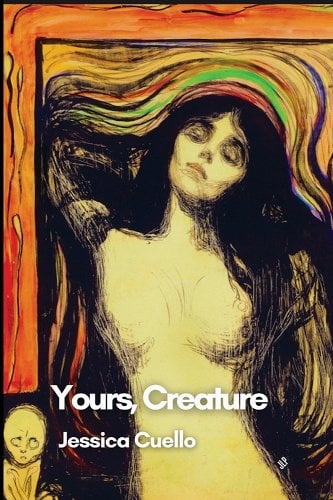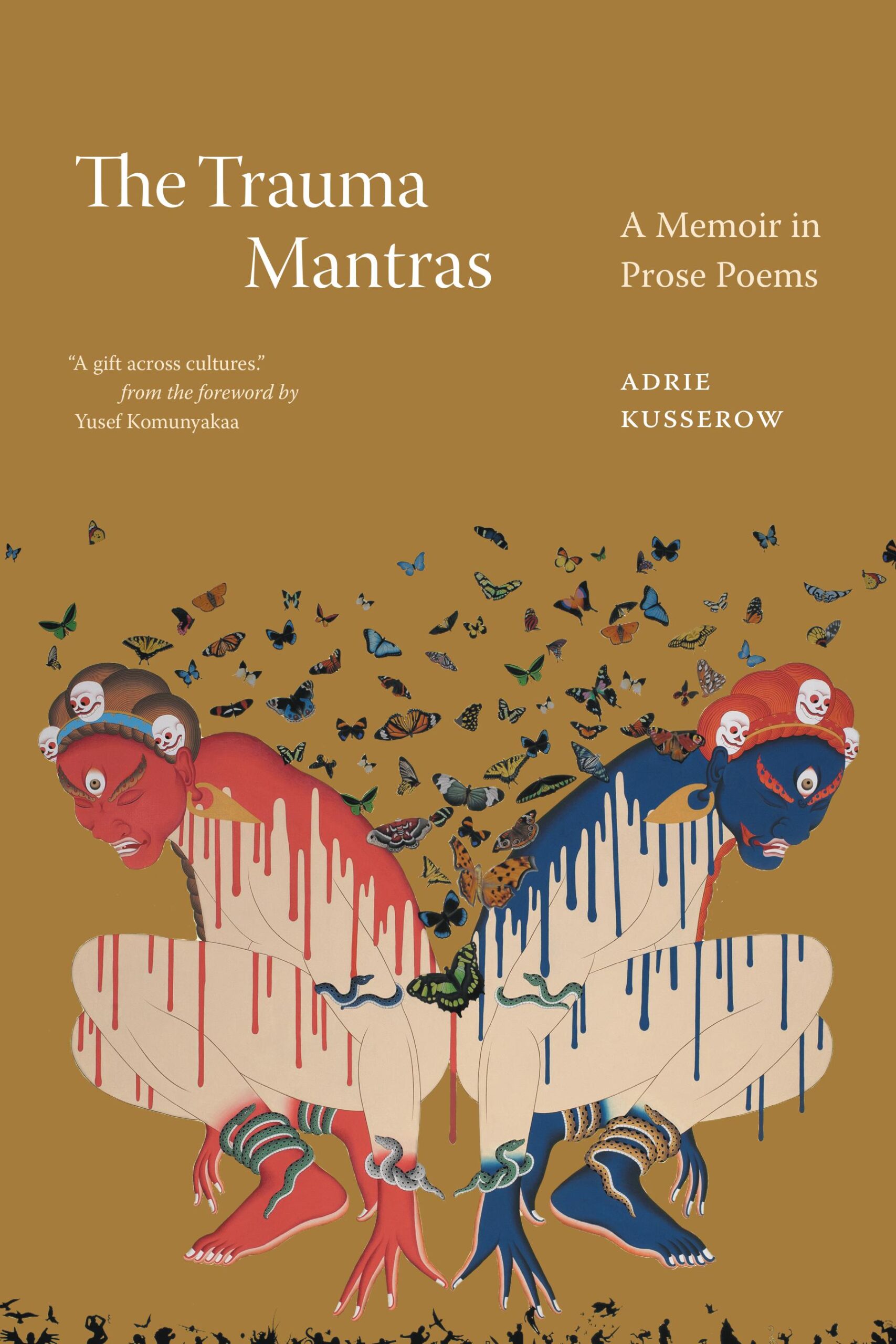Just last week, we at The Common launched our flowery spring issue! Issue 27 features a special portfolio of Arabic stories from Chad, Eritrea, and South Sudan; vibrant paintings by Eritrean artist Michael Adonai; and poetry and prose from all over the world on history and memory, queerness and desire, and the small and large rebellions that shape our lives. In conjunction with the release of the issue, we are bringing back our Friday Reads book recommendation column, so you can learn what books have been inspiring our contributors this spring. Keep reading to hear from Issue 27’s Matthew Lippman, Michelle Lewis, and Kevin Dean!
Jessica Cuello’s Yours, Creature; recommended by Issue 27 Contributor Matthew Lippman
Fuck Frankenstein. Read Jessica Cuello’s Yours, Creature, about the friction behind Frankenstein. These epistles, written from the perspective of Mary Shelley, are monstrous and not monstrous in the way that all monsters are mirrors of humanity, or, of what it means to be human. What happens in these poems is that we get to see what might have lived in Shelley as she went hell bent in her mind to make her monster. Cuello makes these poems and they are her monster, which is beauty, to stop us in the tracks of our own ferocity. She summons Mary’s vision from her own vision from a similar a mixture of joy, pain, confusion, desire, and motherhood. Cuello is a master poet. Moments like this ache, “Dear Creature, / Father won’t see me either. / I grow used to the side of a door. / Do you know I can feel space extend / beyond me?” This is Cuello as Shelley being the universe of experience. We write these things about these books of our poems, of other people’s poems, and how do we get at the heart of the artifact of words, really? I say, Fuck Frankenstein. Read Cuello’s Yours, Creature, about monsters and humans expanding out in the universe of experience both horrible and tender for everything.
Morgan Parker’s You Get What You Pay For; recommended by Issue 27 Contributor Michelle Lewis
“I am tired of surviving,” says Morgan Parker in her 2024 memoir-in-essays, You Get What You Pay For, “I want to know who I could be in my right mind.” Parker is the empathetic, cheeky, thoughtful narrator of this collection—in other words, just a girl, standing on a slave ship, asking someone to love her.
Beginning with her sheltered upbringing as the only Black kid in her class in a conservative religious town, Parker is at the mercy of her poet’s mind and its mental illness. She “passes” as a functioning member of society, and at times her depression overtakes her. It is most ruthless when Black men and women are being shot “accidentally” during (before, and since) the writing of the book. The ubiquity of the unpunished killings, death-by-cop “suicides,” and hair-trigger shootings of the mentally ill heightens her vulnerability as she attempts to exist, let alone thrive, let alone construct a credible dating profile. Parker struggles to metabolize the beating drum of news while providing cultural context for the protests in Ferguson to her oblivious white therapist who doesn’t, she reminds Parker, “have a TV.” A slave ship, real and metonymic, provides the framework, along with Zora Neale Hurston, Walter Benjamin, and others, in essays about Bill Cosby, old-school Kanye, a tour of a preserved plantation with a willfully unaware guide, a Jay-Z video, and her many, often wrenching, efforts to live openheartedly and freely. “There is a part of me that is always back on the boat,” she says.
Parker is an undeniable force as a poet with books like Other People’s Comfort Keeps Me Up at Night, There Are More Beautiful Things Than Beyoncé, and Magical Negro that showcase a voice that’s both breezy and sharp as a chiseled stick. Admirers of her poetry will feel at home in the dynamic, candid prose of You Get What You Pay For. But the book’s heart and substance lie in it being a treatise that ends in an appeal—one that could, Parker argues, help retrieve a bit of the damage incurred yesterday to create a lifeline of hope for today.

Iman Mersal’s Traces of Enayat (translated by Robin Moger); recommended by Issue 27 Contributor Kevin Dean
If there’s one book my friends in Cairo have been talking about in recent years, it’s Traces of Enayat by Iman Mersal. So, when the English translation (by Robin Moger) arrived in April from Transit Books, I blazed through it in an entire weekend, eager to catch up. It was a consuming read, layered and complex as the best hybrid memoirs are, with a sadness at its heart I wasn’t prepared for.
The book begins in 2015 with Mersal, an Egyptian poet, translator, and academic living in Canada, having returned to Cairo on a literary hunt. Decades ago, she discovered an obscure novel in Cairo’s Ezbekiya used book market, Love and Silence, and the book’s message of alienation, of death and the unbearability of life, spoke to the “exact moment” she was in. Since then, she’s tried to learn what she can about its author, Enayat al-Zayyat, who took her own life in Cairo in the early 1960s before the novel was published.
In her quest, Mersal is blocked at nearly every turn. Enayat’s letters and other writings are withheld, or have been destroyed, by family and old friends. She’s been pruned from newspaper archives, left out of family trees. Meanwhile, street names have changed and villas have been torn down. It’s a difficult journey, but one taken out of compassion, and Mersal is persistent and honest along the way, revealing her own struggles as a writer, a woman, and a mother.
What emerges is not a traditional biography of Enayat but rather “traces,” an account of a woman who “went to war for her individuality” and was ultimately defeated. There are victories for Enayat – like writing a novel, or securing a divorce. But, to me, the book is ultimately about the costs of daring to be an individual (particularly for women). It’s also about who gets to be remembered, and how. Like with any life that ends much too soon, Mersal lets us look back on Enayat’s with a mix of hope and loss: understanding that this was perhaps what her life was meant to be, yet still imagining how much different it could have been.






